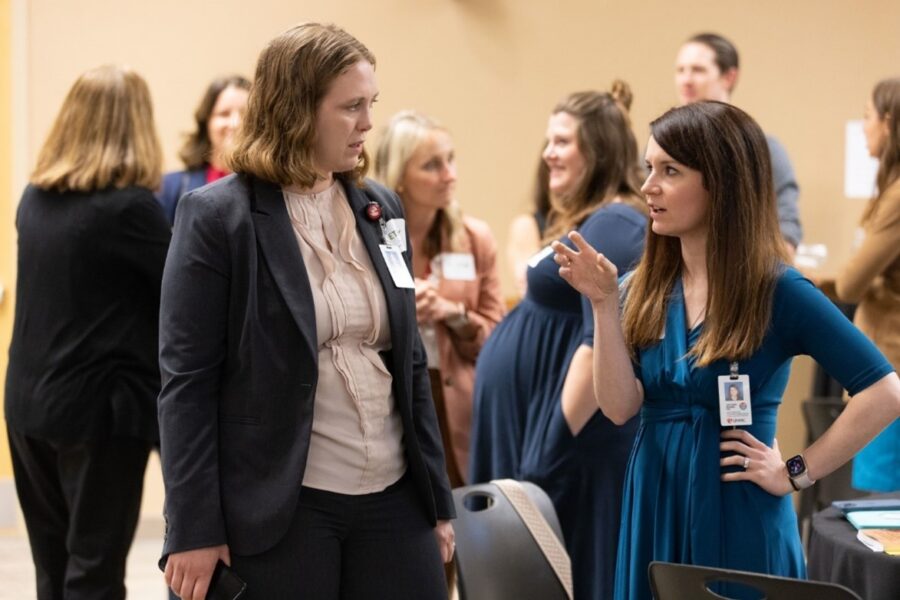UNMC has invested in 20 trained faculty coaches who advance the talent and skill within the academic health sciences community – and now the UNMC Office of Faculty Development is looking to grow the ranks of people being coached.
UNMC’s leadership in coaching provides valuable support and skill-building across a wide range of competencies, free of charge to UNMC faculty.
“Coaching is a well-recognized method of improving performance and personal satisfaction with career,” said coach Suzanne Haney, MD, a professor and vice-chair of faculty affairs in the department of pediatrics. “Faculty who are more engaged and confident are better providers, educators and researchers.”
Coaching has emerged as an individualized, action-oriented method of talent development. It is distinct from mentoring, advising and disciplinary or remedial skill-building conversations in that the “coachee”initiates the relationship and dictates the goals and direction.
UNMC coach Tammy Webster, PhD, a professor and the assistant dean for academic affairs with the UNMC College of Allied Health Professions, distinguishes coaching from other relationships.
“In coaching, the individual being coached holds the responsibility in uncovering solutions and taking ownership in carrying out action towards resolution,” she said. “Through open-ended questioning, the coach walks the individual through the multi-faceted layers of the challenge at hand while keeping the ownership of resolution on the individual.”
Common themes in UNMC coaching sessions include work-life integration, interpersonal or team function, career crafting and time management. With myriad factors leading to burnout among health care faculty, coaching is one investment that leads to better faculty engagement and retention.
UNMC coach Sarah Richards, MD, an associate professor of internal medicine and senior medical director for clinician experience with Nebraska Medicine, said, “People seem to feel energized and motivated after coaching sessions. They often feel less ‘stuck’ and more ready to tackle whatever issue or concern they might be facing.”
Coach Dan Hershberger, MD, an assistant professor in the UNMC Division of Pulmonary and Critical Care, said the real power of a coach is helping faculty identify and utilize their own existing skills and solutions.
“The most important thing in coaching is helping others find their path to their version of success,” he said. “Their ideas are often more interesting and nuanced than anything I, as the coach, could think of.”
UNMC’s team of coaches – available in this directory – are eager to support UNMC faculty through the Creative Coaching program.
Interested faculty can review additional information and complete an intake form on the UNMC Office of Faculty Development website.

This is a great opportunity for faculty! Perhaps there could be a similar program for staff to enhance skills and advance in their careers. We have great support staff here at UNMC and it would help retain many employees.
I agree with Marcela’s comment. A program like this for staff would be very beneficial.
I love this! And I am in agreement with Marcela. Development, clear career paths, and support would go a long way towards keeping support staff engaged and at UNMC.
I agree with the comments above. Hopefully, the staff advisory committee will develop into a staff senate like the other 3 campuses and provide some added support for staff’s career pathways etc.